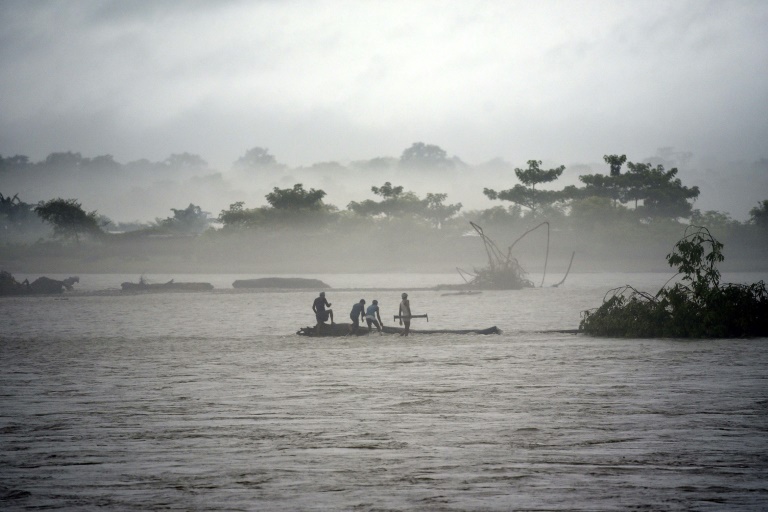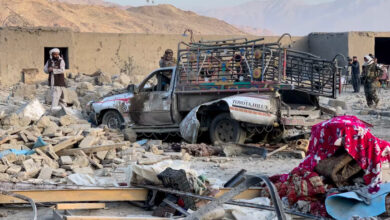
Survivors scrambled for higher ground as torrential monsoon rains swept away homes and triggered landslides across South Asia Tuesday, with millions of people affected and at least 180 dead, officials said.
The monsoon is crucial for irrigation and groundwater supplies in the impoverished region — home to a fifth of the world’s population — and brings relief after the unforgiving summer.
But the downpours — which stretch from June to September — can turn deadly, and have wreaked havoc again this year across India, Nepal, Bangladesh and Pakistan-administered Kashmir, with people, dwellings and boats in remote low-lying areas washed away.
“Entire communities have been cut off by rising waters, increasing the risk of people going hungry and getting sick,” Xavier Castellanos, of the International Federation of Red Cross, said of the growing crisis.
In Mumbai, a building collapsed in a cramped neighborhood, killing four people and trapping 12 following heavy rains in the city.
Almost a third of Bangladesh — a delta country criss-crossed by hundreds of rivers — was underwater, Arifuzzaman Bhuyan of the state-run Flood Forecasting and Warning Centre told AFP.
At least 14 major rivers, including the Brahmaputra, burst their banks and were flowing above “danger levels”, marooning hundreds of thousands, he added.
The toll in the flood-prone country rose to 34, including five children who drowned, 18 others hit by lightning and seven who drowned after their boat capsized in choppy waters in the Bay of Bengal.
In Nepal, at least 78 people died and 16,000 families were displaced, although flood waters have started receding. Images showed rescuers using inflatable dinghies to evacuate families trapped in flooded houses.
“The ground floor of our house was completely submerged,” Rajaram Yadav, 45, told AFP from a district near the border with India.
“Our family and some neighbors survived by staying at the top floor for two days. Most one-floor mud houses in the areas have been severely damaged.”
Health experts have warned of possible outbreaks of waterborne diseases and called for international help.
Red alert
Nearly 50 people have been killed in India, with two eastern states — Assam and Bihar, which borders Nepal — bearing the brunt of the deluge.
Authorities in Assam declared a red alert Monday as the flood situation turned critical, with villages cut off by surging waters and a major highway submerged.
Photos showed residents crammed in boats carrying their belongings to safer areas in Morigaon, one of the worst-affected districts, and just the roofs of submerged homes above water.
So far 11 people have died in the state and some 83,000 people displaced by flooding.
Authorities have raced to reach animals marooned by the deluge at the state’s World-Heritage listed Kaziranga National Park, which is home to two-thirds of the world’s one-horned rhinos.
In Bihar, 25 deaths were reported, with 2.5 million residents affected.
Among the dead were three children who drowned as they went to check the rising water level in a canal. Two others died while playing near a ditch filled with floodwater, the Press Trust of India reported.
Further northwest, in the Pakistan-administered part of the Kashmir region, flash floods killed 23 people and damaged 120 houses, with the water and power supplies crippled.
The United Nations said Monday it “stands ready to work with the authorities in the affected countries as they respond to the humanitarian needs resulting from this ongoing monsoon season”.
Image: AFP / David TALUKDAR Monsoon rains have wreaked havoc across South Asia




